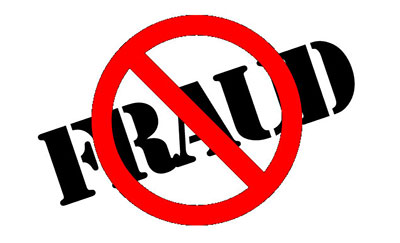Tips for Avoiding Disaster-Related Fraud
–
September 22, 2025

Disasters tend to bring out the best in people. But unfortunately, disasters also can bring out some of the worst in people too. Fly-by-night contractors and scam artists follow in the wake of disasters to prey on vulnerable victims. If you feel you are a victim of fraud, contact reportfraud.ftc.gov.
The following are some of the typical types of fraud that can take place after a disaster and what you can do to avoid them.
PRICE GOUGING
Occurrences of price gouging following a disaster are well documented. Most businesses are community-minded and deal with their neighbors fairly. Some, however, are not. To report price gouging situations, contact the New Jersey Division of Consumer Affairs at njconsumeraffairs.gov or 800-242-5846 (toll free in New Jersey) or 973-504-6200.
ADVANCE-FEE LOAN SCAM
If you need to get a loan quickly, don't be tempted by promises of “guaranteed” loans for upfront fees. Telephone solicitors may request a loan initiation fee ranging from $100 to several thousand dollars. Fraud prevention experts warn that you may never get a loan or see your money again. To learn more, visit njconsumeraffairs.gov.
BEFORE ANYONE STARTS WORK
The FTC recommends the following to avoid disaster recovery scams before any work begins:
- Contact your insurance company.
- Find out if tree and debris removal contractors need to be licensed in your area.
- Research a contractor’s reputation and work online.
- Check with the local home builders’ association.
- Get more than one estimate.
- Look for signs of a scam.
- Read the contract carefully.
DOOR-TO-DOOR SOLICITATION AND CHARITY FRAUD
In the wake of a disaster, you may find a series of solicitors at your door seeking donations to help with recovery efforts. In most municipalities, anyone soliciting door-to-door must be registered with the local police department.
For peace of mind, donate directly to the charity of your choice. Frequently, the door-to-door solicitors are only in town long enough to take advantage of the situation.
Before you donate, remember:
- Do not give cash.
- Do not give out your credit card number.
- Do not be pressured into giving.
- Do not give to a charity because you were sent a gift or were offered a "free" prize.
- Do not be fooled by names that sound similar to legitimate charities.
- Do not do business over the telephone — ask for information in the mail.
- Beware of organizations offering to send a courier to pick up your donation.
- Write a check payable only to the charity.
- Beware of appeals that are long on emotion and short on fact.
When people solicit a charitable donation, ask questions:
- What is your full name?
- What is the phone number and address that you are calling from?
- What is the full name of the charity you represent?
- What is the address of the headquarters?
- What is the telephone number?
- How long has the charity been in operation?
- What are its goals and purposes?
- How will my donation be used?
- Is my contribution tax deductible?
- How much of my donation will go directly to the charity?
HELPFUL TELEPHONE NUMBERS
New Jersey Division of Criminal Justice
Department of Insurance Fraud
877-553-7283
Department of Homeland Security
202-282-8000
FEMA National Registration Center
800-621-FEMA (3362)
Small Business Administration (SBA)
Fraud Hotline and Answer Desk (answerdesk@sba.gov)
800-827-5722